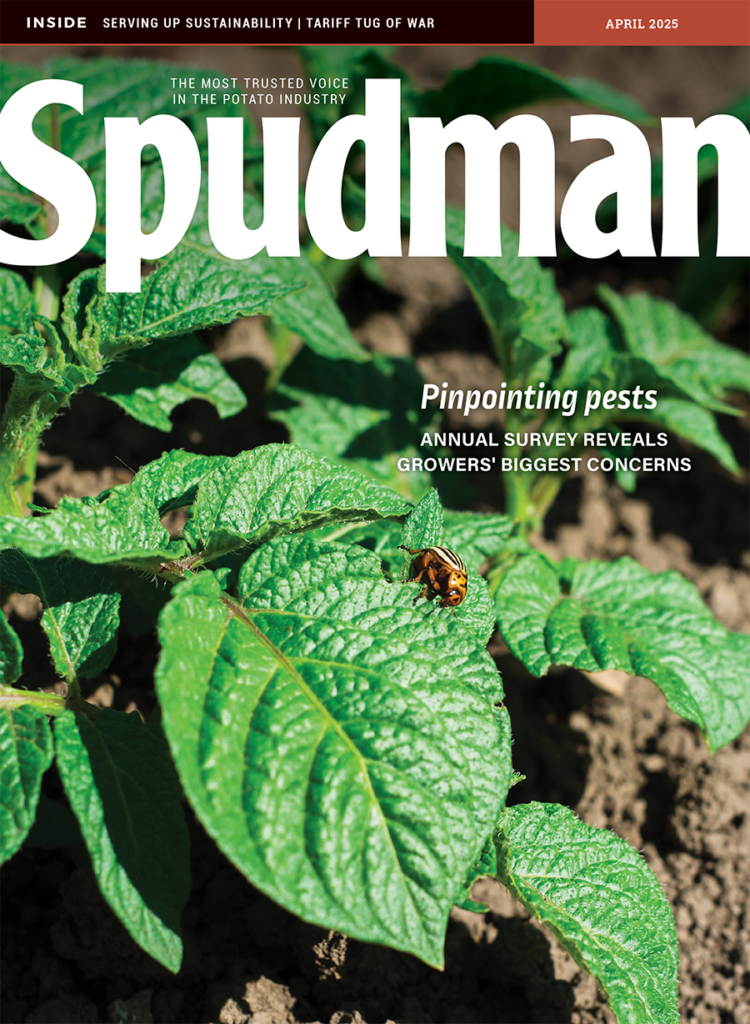Aug 26, 2020USDA-NIFA to establish seven artificial intelligence institutes
The U.S. Department of Agriculture’s National Institute of Food and Agriculture and the National Science Foundation announced they are establishing seven new artificial intelligence (AI) institutes across the country to accelerate research, expand America’s workforce and transform the future of American agriculture.
 Advancements in AI research have broad applications that can create economic, health and safety benefits across multiple industries and all levels of education.
Advancements in AI research have broad applications that can create economic, health and safety benefits across multiple industries and all levels of education.
This national network of Artificial Intelligence Research Institutes represents the nation’s most significant federal investment in AI research and workforce development to date. The $20 million investment in each of five NSF AI institutes and two USDA-NIFA AI Institutes is just the beginning.
“This major Federal investment in next generation agriculture signals our commitment to keeping American agricultural innovation on the leading edge of global science,” said NIFA Acting Director Parag Chitnis. “These future-focused centers of innovation will use the latest techniques from all corners of science including molecular science, engineering, and robotics to seek solutions for myriad challenges facing agriculture, from crop improvement and animal welfare to labor shortages and farm safety.”
By partnering U.S. scientific powerhouses, USDA-NIFA and NSF, with the U.S. Department of Homeland’s Security Science and Technology Directorate, the U.S. Department of Transportation’s Federal Highway Administration and U.S. public research universities, these institutes will serve as hubs in a broader nationwide network aimed at improving American competitiveness and transforming key areas of society. The AI Institutes’ research will improve our national capacity in critical areas such as extreme weather preparedness, K-12 education advancement, next-generation workforce development and agricultural resilience and sustainability.
Here are the specific focus areas:
- USDA-NIFA AI Institute for Next Generation Food Systems, led by a team at the University of California, Davis, integrates a holistic view of the food system with AI and bioinformatics to understand biological data and processes, addressing issues of molecular breeding to optimize traits for yield, crop quality, and pest/disease resistance; agricultural production, food processing and distribution, and nutrition. Major emphasis is on inclusive education and outreach approaches to build a diverse, next-generation workforce.
- USDA-NIFA AI Institute for Future Agricultural Resilience, Management and Sustainability, sponsored by USDA-NIFA and led by a team at the University of Illinois at Urbana-Champaign, will advance AI research in computer vision, machine learning, soft object manipulation and intuitive human-robot interaction to solve major agricultural challenges including labor shortages, efficiency and welfare in animal agriculture, environmental resilience of crops, and the need to safeguard soil health. The institute features a new joint Computer Science+Agriculture degree and global clearinghouse to foster collaboration in AI-driven agriculture research.
- NSF AI Institute for Research on Trustworthy AI in Weather, Climate, and Coastal Oceanography, led by a team at the University of Oklahoma, Norman, assembles researchers in AI, atmospheric and ocean science, and risk communication to develop user-driven trustworthy AI that addresses pressing environmental concerns. With AI certificate programs aimed at workforce skills, the institute is providing the research and training necessary for the future workforce to deliver the advances needed to deal with environmental hazard challenges.
- NSF AI Institute for Foundations of Machine Learning, led by a team at the University of Texas, Austin, focuses on major theoretical challenges in AI, including next-generation algorithms for deep learning, neural architecture optimization and efficient robust statistics. The institute’s partners include large industrial technology companies and the city of Austin. Major online coursework and research initiatives will bring current AI tools to thousands of students and professionals across the country.
- NSF AI Institute for Student-AI Teaming, led by a team at the University of Colorado, Boulder, is developing groundbreaking AI that helps both students and teachers work and learn together more effectively, engagingly and equitably. The vision is to develop “AI partners” that will observe, participate in and facilitate collaborative learning conversations by interacting naturally through speech, gesture, gaze and facial expression in real-world classrooms.
- NSF AI Institute for Molecular Discovery, Synthetic Strategy and Manufacturing (or the NSF Molecular Maker Lab Institute), led by a team at the University of Illinois at Urbana-Champaign, focuses on development of new AI-enabled tools and serves as a training ground for the next generation of scientists with combined expertise in chemical synthesis and bioengineering.
- NSF AI Institute for Artificial Intelligence and Fundamental Interactions, led by a team at the Massachusetts Institute of Technology, in Cambridge, incorporates workforce development, digital learning, outreach and knowledge transfer programs to advance physics knowledge — from the smallest building blocks of nature to the largest structures in the universe — and galvanize AI research innovation to broaden societal impacts.
“The AI institutes being awarded today comprise large, multi-disciplinary, and multi-sector collaborations: they bring together consortia of dozens of universities and other organizations, ultimately spanning academia, government, and industry,” said Michael Kratsios, U.S. Chief Technology Officer. “In effect, over the next five years, some of the best minds in the country will be tackling some of the grandest challenges that we face, both in terms of new AI techniques as well as breakthroughs in fields of science and engineering and sectors of our economy. And along the way, they will nurture the future American workforce in AI research and practice.”
Learn more about the USDA-NIFA Artificial Intelligence Institutes at nifa.usda.gov an














